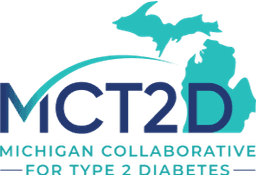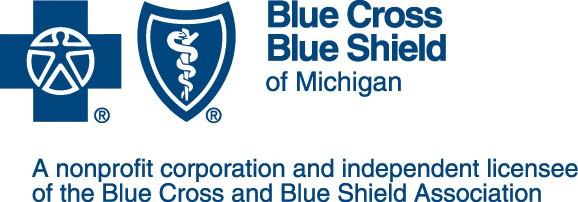Case Studies in Collaboration is an occasional web series developed by the Michigan Collaborative for Type 2 Diabetes. In long and short form video and text, we profile a physician organization (PO), practice, or clinical team from across the MCT2D collaborative. Here, we feature Henry Ford Health's Diabetes Empowerment Group.
NEWS & EVENTS
SPECIALTY CARE
Henry Ford Health's (HFH) Diabetes Empowerment Group has been a beacon of support for Metro Detroit patients, caregivers, and Henry Ford clinical experts over the past 15 years. Originally launched as in-person meetings at five Henry Ford locations, the group transitioned to a virtual format during the COVID-19 pandemic, which led to a significant increase in attendance and engagement. The Diabetes Empowerment Group, led by members of Henry Ford Health’s Diabetes Care Connection (DCC) program, holds monthly free sessions online, with options to join at the lunch hour or in the evening.
A Community-Driven Approach

"What sets our program apart is the collaborative nature of our sessions," explains Patricia Reid, RDN,
CDCES, of the DCC group. Reid is the departmental champion of the Diabetes Empowerment Group. "The topics are driven by the participants themselves, based on their interests and needs." This participant-driven format ensures that the group remains relevant and engaging. For example, recent discussions have ranged from medication management and nutrition to self-care and mental health.
Reid elaborates, "In January, we had our topic for the month: ‘Starting the New Year on the Right Foot.’ It was
all about diabetes and foot health. We had a podiatry doctor come. We had an orthotist, and we had a
vascular physician talking about peripheral artery disease.”
The group invites clinical experts to lead presentations and discussions, with opportunities for questions and
answers throughout. Regarding the January foot health session, Reid explained, “ Not only did the docs
present information, but they had a discussion about it all too, which, you know, that's what the patients
needed. They need people to hear them.”
The patients in the group leave their stamp on the group, even coming up with its name. “How the group got the name: ‘Empowerment.’ The patients actually chose that,” says Pam Milan, RDN, CDCES, a long-time member of the Diabetes Care Connection.
“They didn't want to call it a ‘support group.’ They wanted the word ‘empowerment’ used because they wanted to learn more about diabetes. They wanted to talk with people who are in the same situation.”
The Care Connection
HFH's Diabetes Care Connection (DCC) brings together clinicians, nurses, registered dietitians,
and certified diabetes care and education specialists like Reid and Milan to provide wraparound care for HFH
patients with type 1 and type 2 diabetes, as well as prediabetes. “When patients do come to see us [at the
DCC], as part of our after-visit summary, we always talk up the program and as part of our DSMES program
as well.”
Physicians, residents, fellows, pharmacists, nurses, and other clinical trainees from across Henry Ford Health
have stepped up to lead Diabetes Empowerment Group sessions. The group prides itself on cultivating and
sharing high-quality information from experts, providing opportunities for patients to extend their traditional
diabetes self-management education and opportunities for clinicians to reach patients in an extended one-
hour format.
Milan shared the story of one patient who was “a little hesitant” to attend traditional DSME after her doctor
referred her. At her first group diabetes education session, others in the group cheered her on, even getting
permission to call and remind her to attend. “ By the time she finished our four sessions, she was grateful that
everybody had helped her and realized what a benefit it was.”
An Inclusive Environment for All
One of the group’s core values is inclusivity. As Reid highlights, "It's not just the patients who benefit from
these sessions, but also their caregivers, family members, and anyone with an interest in diabetes." Kim Miazek, RN, CDCES, another key program organizer and DCC member, adds, "These empowerment groups began 15 years ago as in-person sessions. When we shifted online, we discovered that the virtual format allowed us to reach a broader audience."
The importance of creating a welcoming and safe environment is emphasized by all involved. "This is a safe
place for our participants," Reid points out. "We build trust from their first interaction with us and continue to
nurture that trust through our ongoing education programs."
Reid and her team have fostered a trusting group environment where patients can tackle difficult topics with
the guidance of experts. The group has hosted sessions on navigating sexual health with diabetes, which can
be a sensitive topic.
Miazek admits, “It can be a sensitive topic, but it’s an important part of your overall health. Patty’s very skilled at it.”
Reid adds, “Building that trust all starts when a patient first comes to see us, right? They may not have had a
good experience outside of this, but this is their safe place now. And I think we do our best to establish that
comfort and trust right up front, and we build on that through our diabetes education program and Medical
Nutrition Therapy.”
Fostering Long-Lasting Change
The impact of the Diabetes Empowerment Group is tangible. Milan says, "We're aiming to develop thinking, problem-solving patients. Ultimately, they are the ones managing their diabetes, and our goal is to provide them with the tools and skills to do so effectively." Miazek underscores this point, noting, "Our group's success is
reflected in increased participation, patient outcome stories, and the community we've built."
One particularly moving story came from a patient who was urged to get a retinal eye exam after attending a
session. She ended up discovering early signs of retinopathy, leading her to claim that the group helped save
her sight.
"We're aiming to develop thinking, problem-solving patients. Ultimately, they are the ones managing their diabetes, and our goal is to provide them with the tools and skills to do so effectively."
-Pam Milan, RDN, CDCES, a long-time member of the Diabetes Care Connection.
Looking Ahead: The Future of Empowerment
As for the future, Patricia Reid is optimistic and ambitious. "My ultimate goal is to see participation double and
start incorporating live events again. The virtual setting has been invaluable, but we also want to create
opportunities for in-person connection through events like diabetes walks or cooking demonstrations."
The Diabetes Empowerment Group is a testament to the power of a well-organized, community-driven
approaches to diabetes outreach, a model that go beyond just education to activate patient curiosity and
active participation in their care. By listening to and evolving with their participants' needs, they continue to
empower individuals with diabetes to live healthier, more informed lives.
HFH's Diabetes Empowerment Group is open to patients, caregivers, and family members.
Participants do not have to be Henry Ford Health patients. Reid recognizes the need for this work, saying “ So
many diabetes support programs in Michigan and across the country have gone away. I think it's a great way
to help keep patients on track and bring them together.”
If you're interested in joining Henry Ford’s Diabetes Empowerment Support Group or want to learn more,
reach out to the group through their dedicated email at empower1 [at] hfhs.org.



